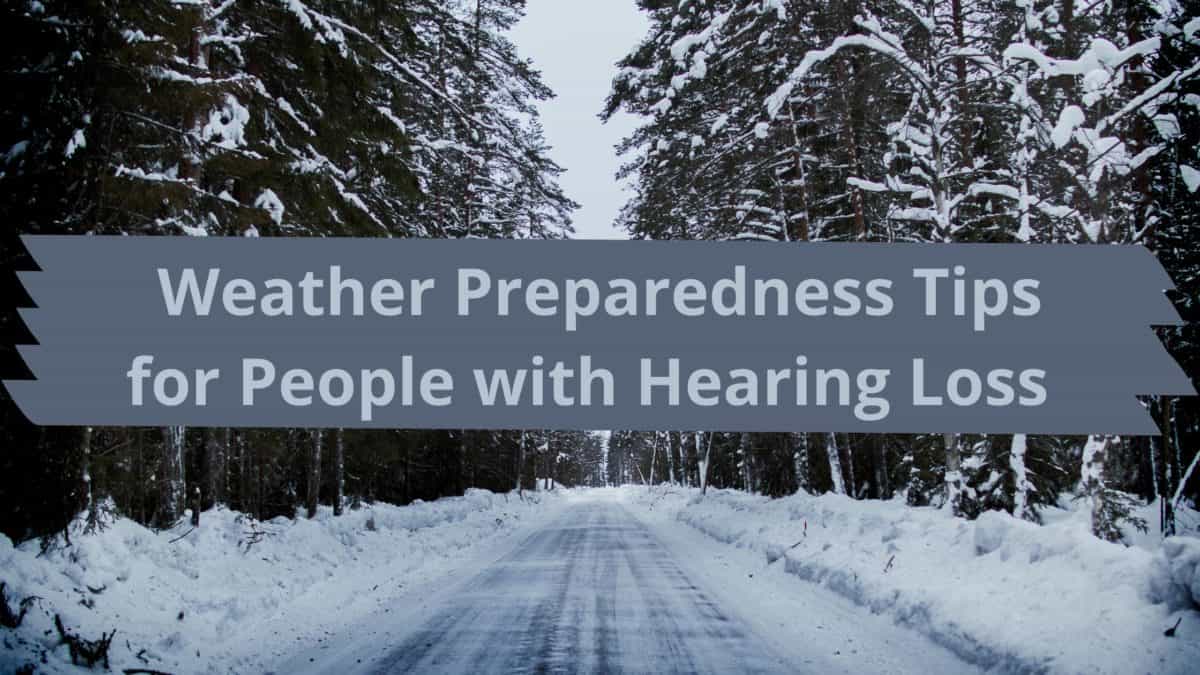Extreme weather is on the rise around the globe. When these events occur, many of us struggle to understand how to prepare ourselves for the next one. Rather than feeling powerless against the tide of extreme weather, there are steps you can take to protect yourself and prepare for emergencies. For those who have hearing ability, getting up-to-date news is crucial for this emergency response, but what about those who are hard of hearing, hearing impaired, or deaf? These sensory impairments require a different approach to preparing for inclement and extreme weather. Rather than leaving your response up to chance, you have the opportunity to respond with caution, logical thought, and the security that preparation can provide. Let’s walk through some of the ways to prepare for extreme weather for those who have hearing loss.
Notification Preparedness
One of the most important gaps to fill in your emergency plan is how to become aware of incoming extreme weather. Take, for instance, the necessity to get news. The emergency broadcast system sends audio warnings through television and radio to areas that can expect extreme weather events. Without these audio warnings, you will need to prepare yourself with an alternate means of notification.
One of the most powerful options is a specialized weather radio. Designed specifically for these events, these radios combine flashing lights with very loud sirens that can provide notification for those who have hearing loss or are hard of hearing. Although the loud sirens will not reach deaf and severely hearing-impaired people, the flashing lights can be placed in multiple locations within the home, making it possible to become alerted to danger.
Vibrating alarms are available as an alarm clock, and similar devices are available to alert a hearing-impaired person to danger while they are sleeping. Although these devices are among the most powerful, many of us use our smartphones to receive notifications of all kinds. If you have a habit of reaching for your phone every few minutes, you might be in good shape to get these extreme weather notifications. However, if you are a seldom phone user, you might need to set up a system of flashing lights and vibrations to alert you to emergencies.
Communication Preparedness
If a severe weather event occurs, you will need to have access to communications devices to stay in touch with emergency personnel and loved ones. Whereas a smartphone might suffice for those who have Bluetooth-enabled hearing aids, others will need to have access to a phone that is responsive to their level of hearing ability. Satellite phones work when power and phone lines are down, but many of them do not work with amplification devices and other technology.
Specialized emergency phones are available through the National Weather Service that can be used during a severe weather event even for those with hearing loss and impairment. These devices work with voice-to-text technology to provide a running feed of information along with the ability for you to reach out with your own updates and status information.
One helpful tip for anyone in a severe weather event is to keep an external battery pack on hand for your smartphone. When the power is out, you will want to have sufficient communication ability through text or voice, and a backup battery can get you through the first phase of the emergency event. For longer-term planning, solar-powered batteries can be a good way to outlast extended power outages.
With these tips in mind, you can prepare yourself for an extreme weather event with hearing loss. Getting treatment for your hearing loss is the best step you can take to be able to access emergency notifications and to communicate about your status. Keep a healthy stock of battery replacements on hand or an external power supply for your rechargeable hearing aids.
Just like your smartphone, having hearing aids with sufficient power during an emergency can be your link to crucial information and communication with others. With these safety tips in mind, you can rest assured that you have prepared yourself with the right hearing assistance and communication tools to weather the next major storm or weather event.
If you are interested in learning more about how hearing aids can benefit you, contact us at The Hearing Health Center of Houston today!


